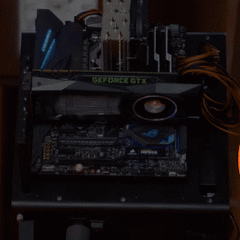Whats a Better MotherBoard For Gaming?
-
Featured Topics
-
Topics
-
0
-
fxuplodeskyking ·
Posted in Troubleshooting0 -
0
-
PeachyUwUSenpai ·
Posted in CPUs, Motherboards, and Memory1 -
6
-
4
-
Britishblue ·
Posted in Networking5 -
5
-
1
-
21
-
-
play_circle_filled

Latest From Tech Quickie:
Ethernet Is Named After Something Really Dumb (and other tech stories)















Create an account or sign in to comment
You need to be a member in order to leave a comment
Create an account
Sign up for a new account in our community. It's easy!
Register a new accountSign in
Already have an account? Sign in here.
Sign In Now